https://youtu.be/v-4J-gHpZqY
Muadh (may Allah be pleased with him) reported that the Prophet warned, “Beware of the three acts that cause you to be cursed: relieving yourselves in shaded places (that people utilize), in a walkway or in a watering place.” (Ranked sound, hasan, by Al-Albani)
The Islamic legislation has also mentioned the benefits of reclaiming a mawat (uncultivated) land. Prophet (PBUH) says: “Whoever revives a dead land has right to it” meaning reward and “If beasts and birds feed from it, he who revived it will have it as a sadaqah” (Al-NissaI from Jabir Ibn Abdullah: Reviving the dead land book, chapter about urging to revive mawat land (5756), Ibn Hiban (5205), Ahmad (14310), And Shuaib al-Arnaut said: Hadith Sahih )
Abdullah ibn Amr ibn Al-Aas (May Allah be pleased with him) reported that the Prophet passed one day by Sad ibn Abi Waqas (May Allah be pleased with him) while he was performing wudu (ritual cleaning of body parts in preparation for prayer). The prophet asked Sad, “Why is this wastage?”Sad replied “Is there wastage in wudu also?” The Prophet said, “Yes, even if you are at a flowing river.” ( Ibn Majah: Taharah and its sunnan book, chapter about shortening prayers and hatred to transgress : Ahmad and authenticated Ahmad Shakir)
Abu Zarr Al-Ghafari (may Allah be pleased with him) reported that the Prophet (peace and blessings be upon him) said, “Removing harmful things from the road is an act of charity (sadaqah).” (Authenticated by Al-Albani)
Anas (May Allah be pleased with him) reported that the Prophet (peace and blessings be upon him) said, “If the Hour (the day of Resurrection) is about to be established and one of you was holding a palm shoot, let him take advantage of even one second before the Hour is established to plant it.” (Authenticated by Al-Albani)
Anas also reported that the Prophet said, “If a Muslim plants a tree or sows seeds, and then a bird, or a person or an animal eats from it, it is regarded as a charitable gift (sadaqah) for him.” (Bukhari)
The Prophet (PBUH) also urged for cleaning roads. Abu Sa’id Al-Khudri narrated that the Prophet (PBUH) said: “Beware! Avoid sitting on the roads.” They (the people) said, “O Allah’s Apostle! We can’t help sitting (on the roads) as these are (our places) where we have talks.” The Prophet said, “If you refuse but to sit, then pay the road its right.” They said, “What is the right of the road, O Allah’s Apostle?” He said, “Lowering your gaze, refraining from harming others, returning greeting, and enjoining what is good, and forbidding what is evil.” The last advice mentioned in this hadith is an umbrella for all the things that include harming the people who use roads and streets.(Bukhari and Muslim : Al-Bukhari from Abu Sa’id Al-Khudri: Al-Mazalim book, chapter about backyards of houses and sitting in them and sitting on roads (2333), Muslim: Al-Libas and Al-Zina book, chapter about ordering not to sit in streets and give way to others (2121))
A Muslim Should not Urinate on Standing Water .(Muslim from Jabir Ibn Abdullah: Taharah book, chapter about ordering not to urinate in stagnant water (281), Abu Dawoud (69), Al-Termizi (68)
Islam even gives Rights to Animals . I cannot cover the Rights of Animals in this article itself ,because it will get Very Big . I have already written an article on Rights of Animals in Islam.
Hadeeth on Saving Environment
I have Compiled Some Hadeeth on Saving Environment . If You need to Copy these Hadeeths for Your Assignment or Project , do Feel Free to drop me an email or send me request in the comment Box .
1. Hadeeth on Keeping Environment Clean
Regarding Islam’s glory in enacting laws that keep the environment clean, Prophet Muhammad (PBUH) has said: “Whenever Muslims plant a tree, they will earn the reward of charity because of the food that comes from it; and likewise what is stolen from it, what the wild beasts eat out of it, what the birds eat out of it, and what people take from it is charity for them.“(Muslim from Jabir Ibn Abdullah: Musaqah book, chapter about virtue of planting and growing ,Ahmad )
2. Hadeeth on Not Urinating under Shaded tree or Walkway
Muadh (may Allah be pleased with him) reported that the Prophet warned, “Beware of the three acts that cause you to be cursed: relieving yourselves in shaded places (that people utilize), in a walkway or in a watering place.” (Ranked sound, hasan, by Al-Albani)
3 Hadeeth on Reviving a Dead and Barren Land
The Islamic legislation has also mentioned the benefits of reclaiming a mawat (uncultivated) land. Prophet (PBUH) says: “Whoever revives a dead land has right to it” meaning reward and “If beasts and birds feed from it, he who revived it will have it as a sadaqah” (Al-NissaI from Jabir Ibn Abdullah: Reviving the dead land book, chapter about urging to revive mawat land (5756), Ibn Hiban (5205), Ahmad (14310), And Shuaib al-Arnaut said: Hadith Sahih )
4. Hadeeth on Not Wasting Water even at Flowing River
Abdullah ibn Amr ibn Al-Aas (May Allah be pleased with him) reported that the Prophet passed one day by Sad ibn Abi Waqas (May Allah be pleased with him) while he was performing wudu (ritual cleaning of body parts in preparation for prayer). The prophet asked Sad, “Why is this wastage?”Sad replied “Is there wastage in wudu also?” The Prophet said, “Yes, even if you are at a flowing river.” ( Ibn Majah: Taharah and its sunnan book, chapter about shortening prayers and hatred to transgress : Ahmad and authenticated Ahmad Shakir)
5 .Hadeeth on Keeping Environment Clean by removing Obstacles from Road
Abu Zarr Al-Ghafari (may Allah be pleased with him) reported that the Prophet (peace and blessings be upon him) said, “Removing harmful things from the road is an act of charity (sadaqah).” (Authenticated by Al-Albani)
6. Hadeeth on Planting a Tree
Anas (May Allah be pleased with him) reported that the Prophet (peace and blessings be upon him) said, “If the Hour (the day of Resurrection) is about to be established and one of you was holding a palm shoot, let him take advantage of even one second before the Hour is established to plant it.” (Authenticated by Al-Albani)
7. Hadeeth that Planting a Tree is a Sadaqah
Anas also reported that the Prophet said, “If a Muslim plants a tree or sows seeds, and then a bird, or a person or an animal eats from it, it is regarded as a charitable gift (sadaqah) for him.” (Bukhari)
8.Hadeeth on Cleaning the Roads
The Prophet (PBUH) also urged for cleaning roads. Abu Sa’id Al-Khudri narrated that the Prophet (PBUH) said: “Beware! Avoid sitting on the roads.” They (the people) said, “O Allah’s Apostle! We can’t help sitting (on the roads) as these are (our places) where we have talks.” The Prophet said, “If you refuse but to sit, then pay the road its right.” They said, “What is the right of the road, O Allah’s Apostle?” He said, “Lowering your gaze, refraining from harming others, returning greeting, and enjoining what is good, and forbidding what is evil.” The last advice mentioned in this hadith is an umbrella for all the things that include harming the people who use roads and streets.(Bukhari and Muslim : Al-Bukhari from Abu Sa’id Al-Khudri: Al-Mazalim book, chapter about backyards of houses and sitting in them and sitting on roads (2333), Muslim: Al-Libas and Al-Zina book, chapter about ordering not to sit in streets and give way to others (2121))
9. Hadeeth on Not Urinating in Standing Water
A Muslim Should not Urinate on Standing Water .(Muslim from Jabir Ibn Abdullah: Taharah book, chapter about ordering not to urinate in stagnant water (281), Abu Dawoud (69), Al-Termizi (68)
10. Rights of Animal in Islam
Islam even gives Rights to Animals . I cannot cover the Rights of Animals in this article itself ,because it will get Very Big . I have already written an article on Rights of Animals in Islam.

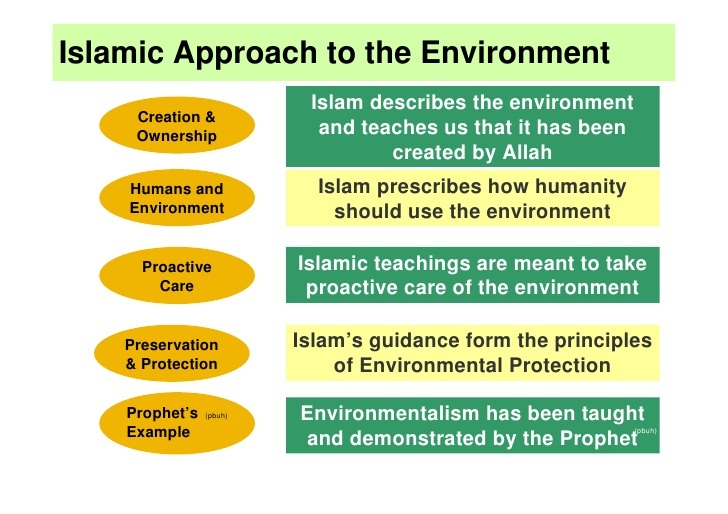
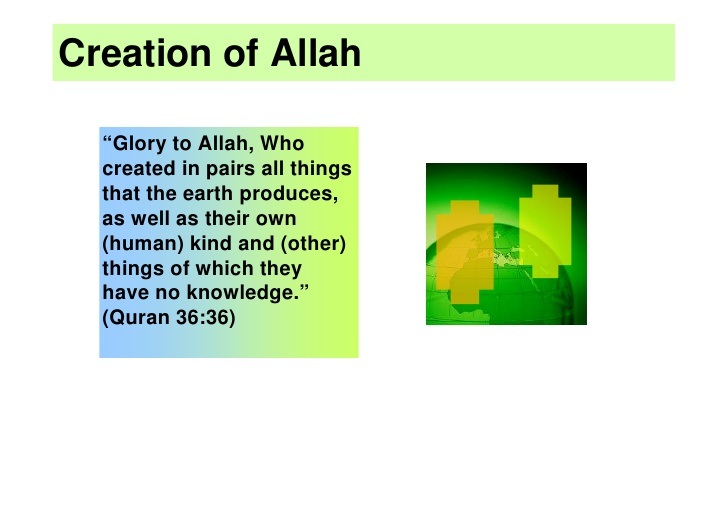
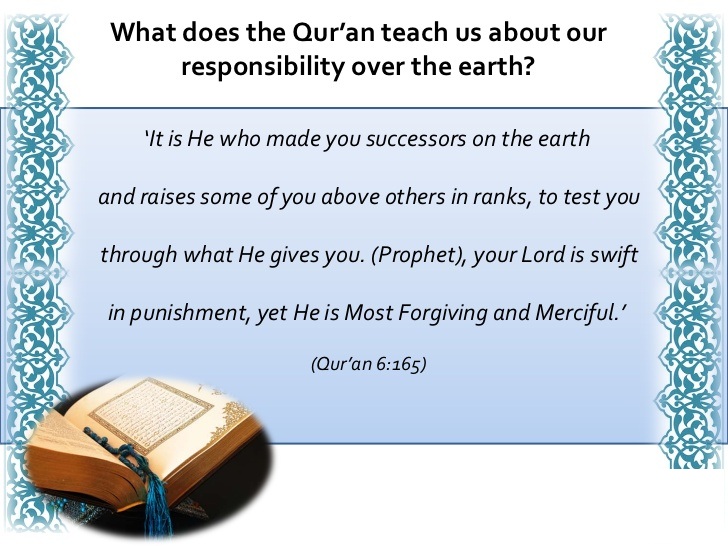
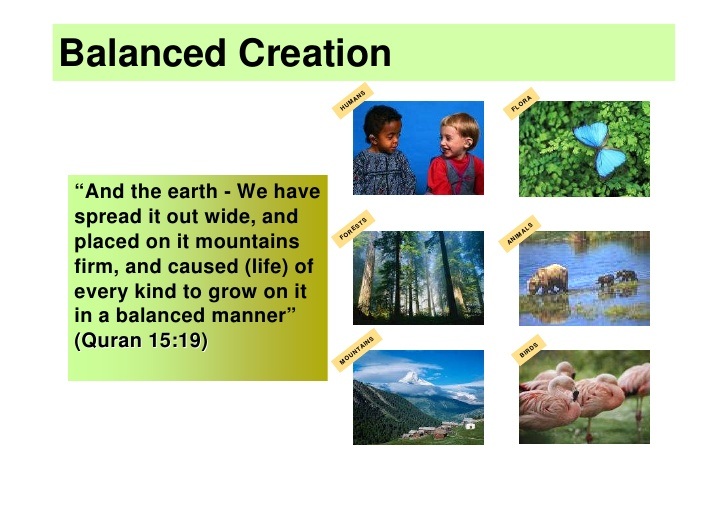
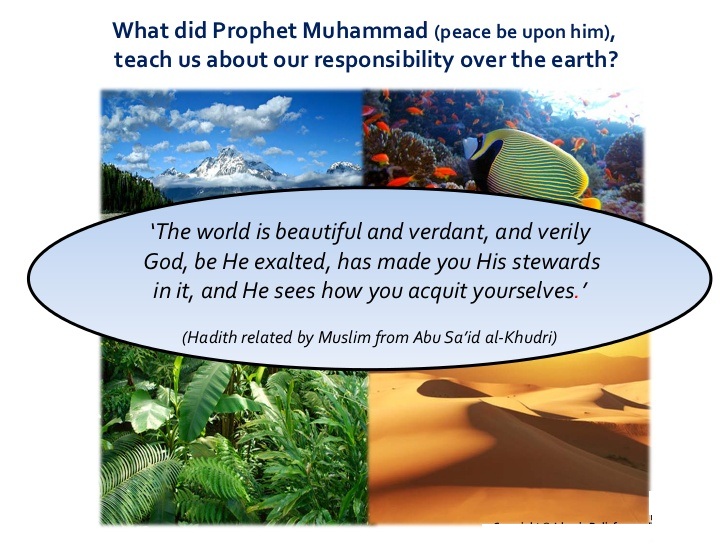
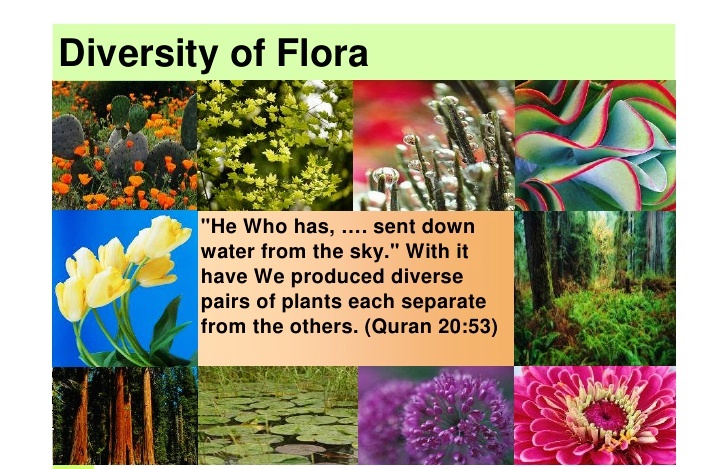
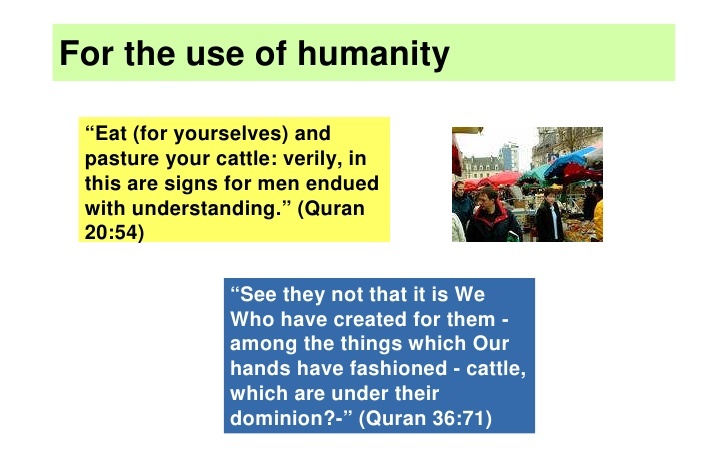
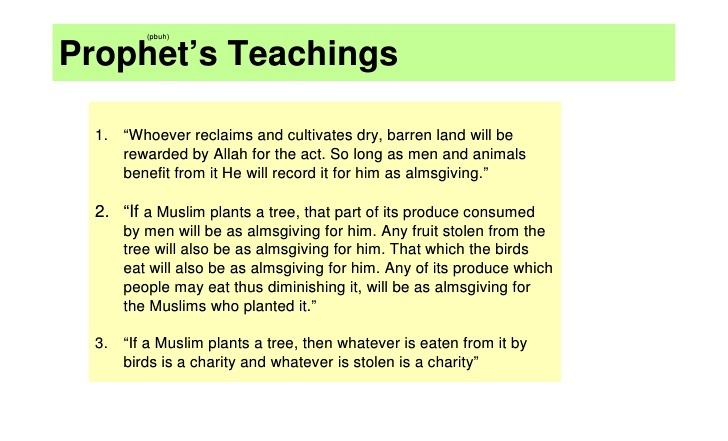
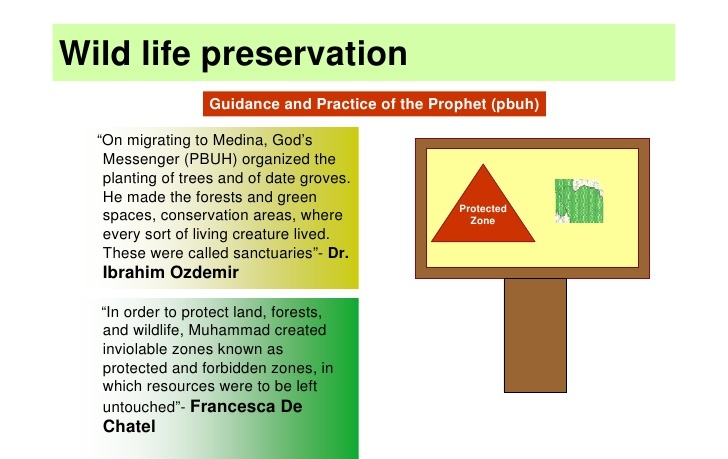
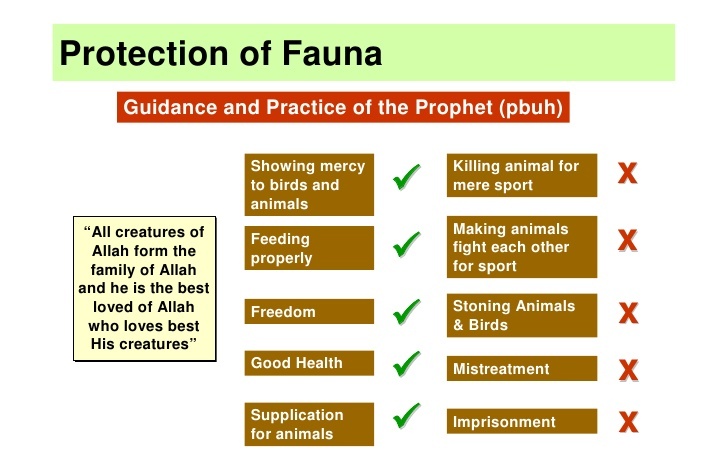
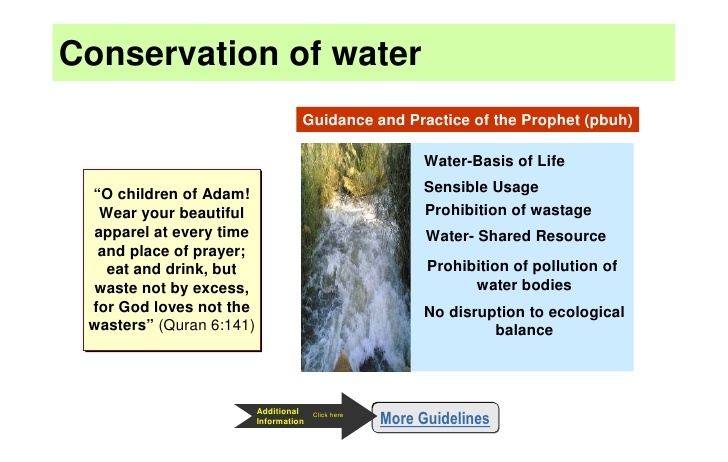
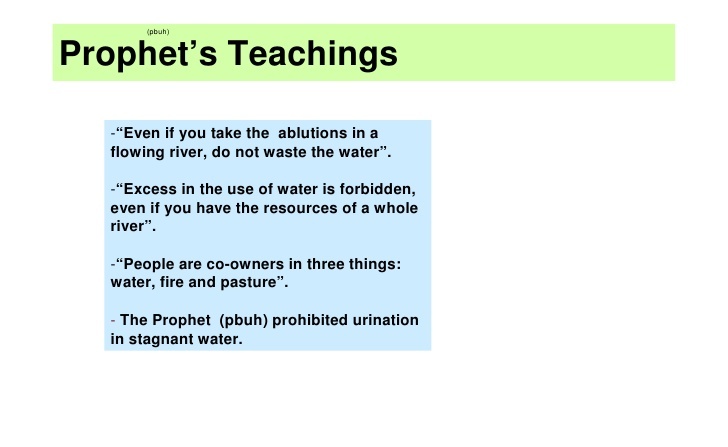
Comments
Post a Comment